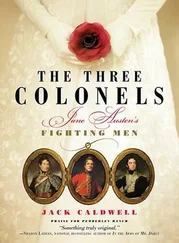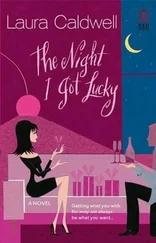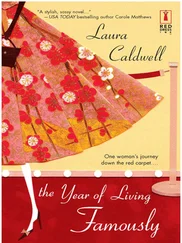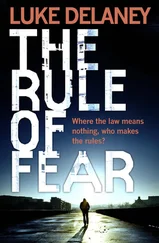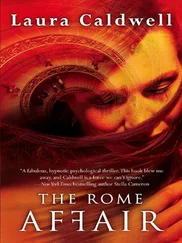At the door, Katie takes her hands away from the small of my back. She seems prepared to speak, but doesn't. Instead, she leans over and gives me a kiss on the cheek, the kind I used to get in our earliest days, as a reward for jogs in the morning. Then she holds the door for me as I leave.
Love conquers all.
In seventh grade, at a small souvenir stand in New York, I bought a silver bracelet with that inscription for a girl named Jenny Harlow. I thought it was, in one stroke, a portrait of the young man she wanted to date: cosmopolitan, with its Manhattan pedigree; romantic, with its poetic-sounding motto; and classy, with its understated shine. I left the bracelet anonymously in Jenny's locker on Valentine's Day, then waited all day for a response, thinking she was sure to know who'd left it.
Cosmopolitan, romantic, and classy, unfortunately, didn't form a trail of breadcrumbs leading directly back to me. An eighth grader named Julius Murphy must've had that combination of virtues in much greater supply than I did, because it was Julius who got a kiss from Jenny Harlow at the end of the day, while I was left with nothing but a dark suspicion that the family vacation to New York had been for naught.
The whole experience, like so much of childhood, was built on misunderstanding. It wouldn't occur to me until much later that the bracelet wasn't made in New York, any more than it was made of silver. But that very Valentine's night, my father explained the particular misinterpretation he found most telling, which was that the poetic-sounding motto wasn't quite as romantic as Julius, Jenny, and I thought.
You may have gotten the wrong impression from Chaucer, he began, with the smile of paternal wisdom. There's more to 'love conquers all' than just the Prioress's brooch.
I sensed that this was going to be a lot like the conversation we'd had about babies and storks a few years before: well intentioned, but based on a serious misunderstanding about what I'd been learning in school.
A long explanation followed, about Virgil's tenth eclogue and omnia vincit amor, with digressions about Sithonian snows and Ethiopian sheep, all of which mattered a lot less to me than why Jenny Harlow didn't think I was romantic, and why I'd found such a useless way of blowing twelve dollars. If love conquered all, I decided, then love had never met Julius Murphy.
But my father was a wise man in his way, and when he saw he wasn't getting through to me, he opened a book and showed me a picture that made his point for him.
Agostino Carracci made this engraving, called Love Conquers All he said. What do you see?
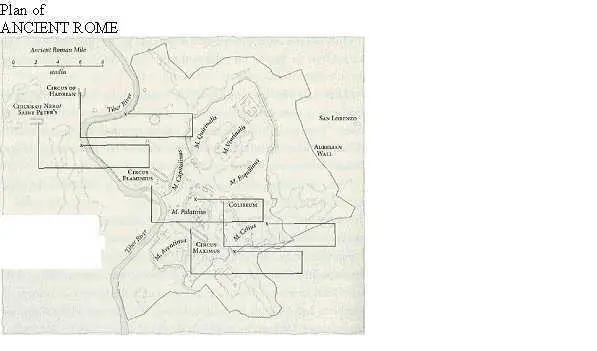
On the right side of the picture were two naked women. On the left side, a baby boy was beating up a much larger and more muscular satyr.
I don't know, I said, unsure which side of the picture I was supposed to be learning from.
That, my father said, pointing to the boy, is Love. He let it sink in.
He's not supposed to be on your side. You fight with him; you try to undo what he does to others. But he's too powerful. No matter how much we suffer, Virgil says, our hardships cannot move him.
I'm not sure I ever completely understood the lesson my father was imparting. I got the simplest bit of it, I think: by trying to make Jenny Harlow fall head over heels for me, I was arm-wrestling Love, which my own cheap bracelet had been telling me was futile. But I sensed, even then, that my father was only using Jenny and Julius as an object lesson. What he really wanted to offer was a piece of wisdom he'd come by the hard way, which he hoped to impress upon me while the stakes of my own failures were still small. My mother had warned me about misguided love, my father's affair with the Hypnerotomachia always in the back of her mind; and now my father was offering his counterpoint, riddled in Virgil and Chaucer. He knew exactly how she felt, he was saying; he may even have agreed. But how could he stop it, what power did he have against the force he was fighting, when Love conquered all?
I've never known which of the two of them was right. The world is a Jenny Harlow, I think; we're all just fishermen telling stories about the one that got away. But to this day, I'm not sure how Chaucer's Prioress interpreted Virgil, or how Virgil interpreted love. All that stays with me is the picture my father showed me, the part he never said a word about, where the two naked women are watching Love bully the satyr. I've always wondered why Carracci put two women in that engraving, when he only needed one. Somewhere in that is the moral I took from the story: in the geometry of love, everything is triangular. For every Tom and Jenny, there is a Julius; for every Katie and Tom, there is a Francesco Colonna; and the tongue of desire is forked, kissing two but loving one. Love draws lines between us like an astronomer plotting a constellation from stars, joining points into patterns that have no basis in nature. The butt of every triangle becomes the heart of another, until the roof of reality is a tessellation of love affairs. Taken together, they have the pattern of netting; and behind them, I think, is Love. Love is the only perfect fisherman, the one who casts the broadest net, which no fish can escape. His reward is to sit alone in the tavern of life, forever a boy among men, hoping someday to tell stories about the one that got away.
The rumor was that Katie had found someone else. I'd been replaced by a junior named Donald Morgan, a wiry tower of a man who wore a blazer when a simple dress shirt would do, and who was already priming himself to be Gil's successor as Ivy president. I happened on the new couple one night in late February at Small World Coffee, the same place where I'd met Paul three years earlier, and a cool exchange followed. Donald managed to say only two or three chummy, innocuous things before realizing I wasn't a potential voter in the club elections, at which point he ushered Katie out of the shop and into his old Shelby Cobra on the street.
It was death by papercut, watching him turn the engine three times before it finally roared to life. I couldn't tell whether it was for my benefit or his vanity, the way he idled in his space for another minute until the road was completely empty before pulling out. All I noticed was that Katie never looked at me, not even as they drove away; worse, she seemed to be ignoring me out of anger rather than embarrassment, as if it were my fault, not hers, that we'd come to this. The outrage of it festered until I decided there was nothing else I could do but surrender. Let her have Donald Morgan, I thought. Let her make her bed at Ivy.
Of course, Katie was right. It was my fault. I'd been struggling for weeks with the fourth riddle— What do a blind beetle, a night-owl, and a twist-beaked eagle share? —and I sensed that my luck had run dry. Animals in the intellectual world of the Renaissance were tricky subjects. In the same year Carracci made his engraving, Omnia Vincit Amor , an Italian professor named Ulisse Aldrovandi published the first of his fourteen volumes on natural history. In one of the most famous examples of his approach to classification, Aldrovandi spent only two pages identifying the various breeds of chickens, then added another three hundred pages on chicken mythology, chicken-related recipes, and even chicken-based cosmetic treatments.
Meanwhile, Pliny the Elder, the ancient world's authority on animals, placed unicorns, basilisks, and manticores on the page directly between rhinos and wolves, and offered his own accounts of how chicken eggs could foretell the sex of a pregnant woman's child. Within ten days of staring at the riddle, I felt like one of the dolphins Pliny described, enchanted by human music but unable to make any of my own. Surely Colonna had something clever in mind with this riddle of his; I was just dumb to its magic.
Читать дальше




